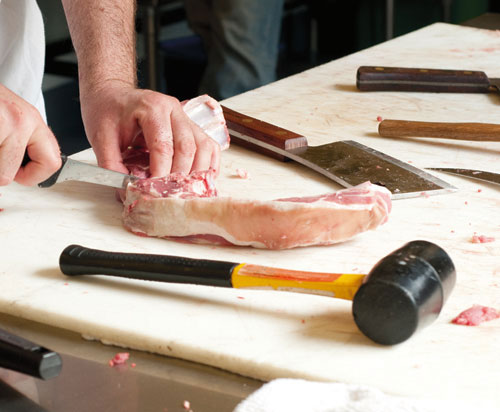 Farm-direct pushes boundaries of the local meat industry.
Farm-direct pushes boundaries of the local meat industry.
By Linda Baker
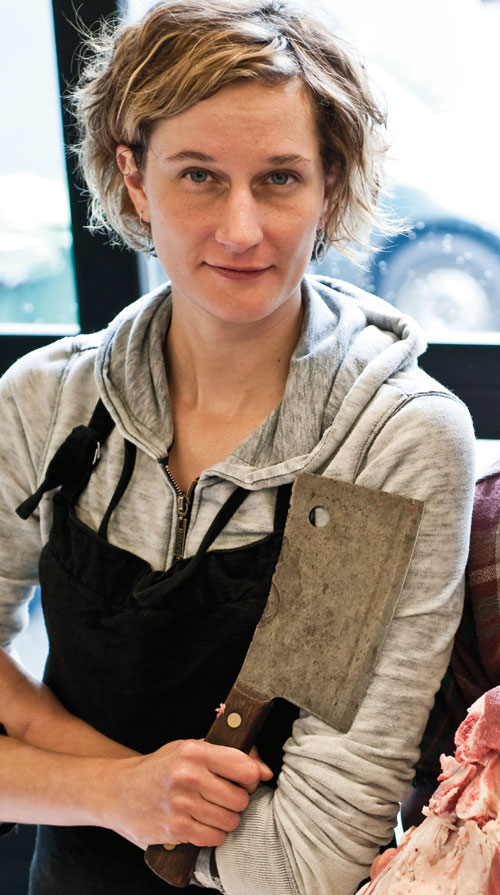 |
Camas Davis runs the Portland Meat Collective, a year-old mobile butchery school. |
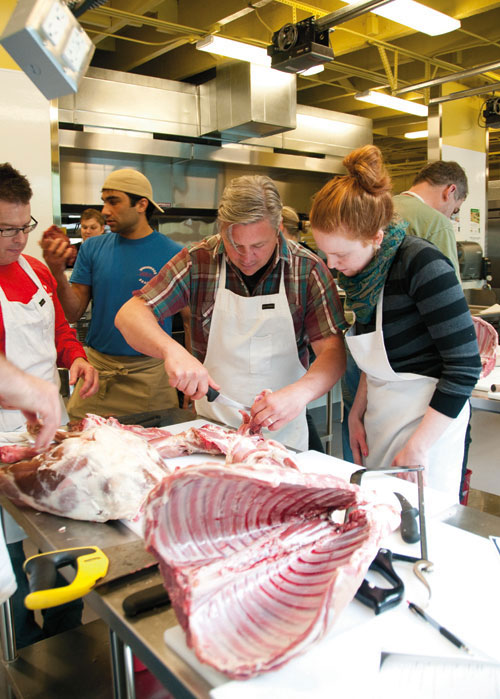 |
At a recent Portland Meat Collective class at Kitchen Cru, Adam Sappington, chef and owner of Country Cat Dinnerhouse and Bar, shows participants how to carve a lamb. // Photos by Teresa Meier |
Camas Davis is sipping tea in the Pearl Bakery, expounding on the lost art of butchery. “The knowledge of what constitutes a good cut of meat is completely gone,” says Davis, a former food editor at Portland Monthly magazine who is now the proprietor of the Portland Meat Collective, a year-old mobile butchery school. ”We don’t know how things are slaughtered or why. We don’t question quality or price. So the meat world gets away with a lot.”
A few blocks from the bakery on NW Broadway is Kitchen Cru, a shared kitchen space where Davis, 34, and an alternating crew of instructors teach students — single moms, hunters, hipsters — how to carve up whole lambs, pigs and sides of beef. “I’m trying to get consumers to understand meat enough that they can own a big part of the process,” says Davis, whose clients leave class with the meat they have mastered.
PMC is one of a small but growing number of businesses that are pushing the boundaries of Oregon’s local meat industry by offering “farm-direct” meat purchasing and products and classes targeting the craftsmanship of how that meat is butchered and prepared. Bridging urban and rural, the eclectic outfits include “private meat clubs” such as Portland’s Gorilla Meats, as well as family farms such as Kookoolan Farms in Yamhill, which last year offered its first how-to-humanely-kill-a-chicken class.
The sold-out class will be offered several times this year, in addition to workshops on curing bacon and ham without nitrates, says co-owner Chrissie Zaerpoor, “It’s a natural extension of buying meat from your farmer,” she says. Capitalizing on demand, farms are also diversifying into “meat CSAs,” in which customers purchase in advance a “share” of the animal harvest, be it a side of grass-fed beef or a dozen free-range chickens. About 50 farms offer such community-supported agriculture programs today, up from only a few in 2007, estimates Chris Deck, co-owner of Deck Family Farm in Junction City.
One of the pioneers, Deck’s CSA is now growing 25% annually. About those boundaries. It’s not happenstance that Davis’ operation is called a “collective,” or that farmers usually refer to CSA “shares” instead of ground pork or sirloin. Federal regulations require meat processed in facilities without an on-site USDA inspector to be consumed only by the owner. That means businesses bound by those rules must technically sell live animals — or portions thereof — to their clients, who become the “owners” before processing.
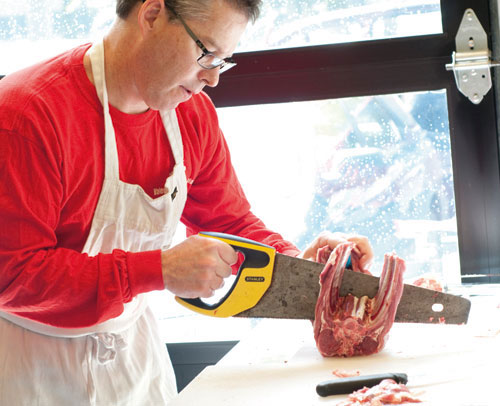 | Clark Haas gets hands-on experience in cutting meat at the PMC class. |
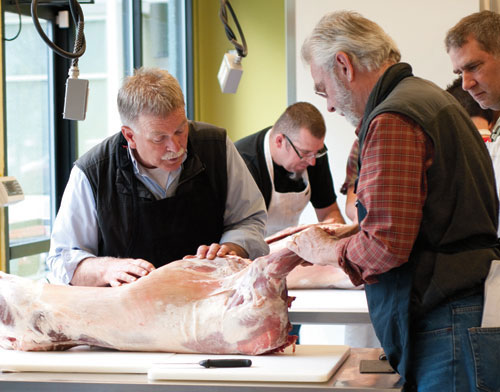 | John Joyer (at left), owner of Sitka Ridge Farm in Hood River, and Bruce Warner examine a whole lamb. |
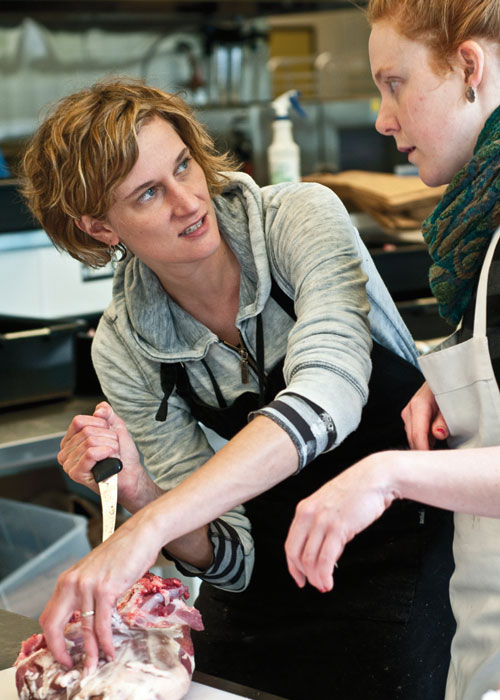 | Camas Davis instructs Kirsten Wray. “Take one class, and you’ve pretty much got it,” says Davis. |
Other hurdles, such as declining numbers of small processors and a slaughtering infrastructure typically disconnected from the farm, are more difficult for the know-thy-meat industry to overcome. “A vegetable farmer can control their market from beginning to end,” observes Deck. “But as meat growers, we lose control as soon as the animal goes to the kill floor.” In the city, training opportunities for next- generation butchers don’t exactly abound, adds Davis, who traveled to France to learn the craft. There are about six butcher shops in the Portland metro area, and possibly 15 statewide.
Despite the challenges, Davis, who aims to eventually open a butcher shop, educational center and clearinghouse matching consumers and farmers, is optimistic about the future and changing the American relationship to meat. In upstate New York, she points out, students pay $10,000 to apprentice at Fleisher’s, a grass-fed and organic meat shop, then go on to open such emporiums in their own communities.
“There is a growing population who doesn’t want to buy meat at grocery stores,” Davis says. “As demand for local, sustainable meat goes up, so will demand for trained people.”


